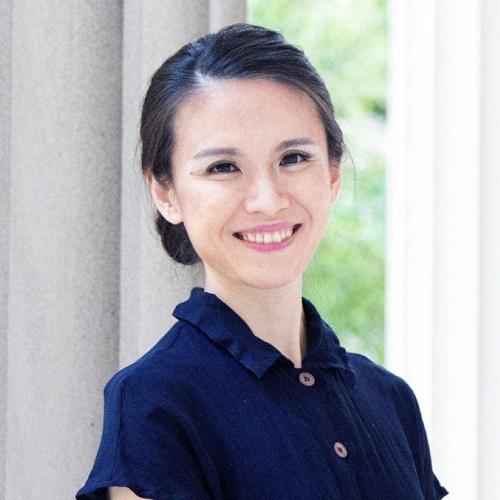President Donald Trump has threatened to levy higher tariffs on more than two dozen countries and on various products in the past few months. China in particular has been a target of the administration’s trade wars, aimed at preventing its dominance in areas such as artificial intelligence, although the U.S. government announced recently that it would sell advanced semiconductors used in AI to China. Meicen Sun is an assistant professor in the School of Information Sciences with an affiliation in the political science department. Her research examines technology policy, AI governance, the geopolitics of data and digital trade. She has written about U.S. technology policy regarding artificial intelligence, the TikTok ban and internet control in China. She spoke with News Bureau arts and humanities editor Jodi Heckel.
What are the costs of the recent imposition of tariffs to the economy, particularly the technology sector?
The most obvious cost is the rise in prices, but it doesn’t stop there. Seeing higher prices and lower demand, companies are holding off on new products. As a colleague from industry puts it, gaming chips have to wait if "mommy and daddy won't buy their kids an Xbox or PlayStation." Penny-pinching crushes the promise of profitability, leaving companies with little incentive to innovate—research and development is not cheap. Hefty prices sting almost as much as the nice things we could have had.
Even if the tariffs are lifted today, we can’t be sure they won’t come back tomorrow. The real drag on the economy is not the tariffs but the uncertainty.
How are trade controls on digital technologies different from those on physical products?
Traditional tariffs create winners and losers that are easy to see: A corn tariff hurts consumers and helps corn producers. Trade policy is about balancing these competing interests. That changes when the goods in question are digital. Digital goods are often "free" in the sense that we don't pay money to use the apps. Instead, we give them our data in return for services from online shopping to social media. "Data security" now becomes the battleground where domestic apps vie to fend off foreign competition.
How does this play out in an actual scenario?
Look no further than the TikTok ban, which I wrote about in The Hill. The accusations against TikTok—threats to national security, privacy and mental health—share two key traits: They concern the general public and they're hard to disprove. If anyone could be a victim, then everyone stands to win from a ban. This isn't a tough case to build given the many things that could go wrong with such apps—as we saw, in fact, with Facebook and Cambridge Analytica. So, why risk sanctions and retaliation when you can protect your Big Tech under legitimate cover while keeping the China hawks happy? The built-in deniability makes digital trade barriers an incredibly versatile tool that can take on as many faces as needed.
What about the broader consequences on the science and technology sector of such digital restrictions?
With digital restrictions, losses show up in unexpected places. My doctoral dissertation found that China's internet control has led to about 30-50% revenue gains for Chinese digital technology firms. This time, the losers aren’t Chinese consumers. They are Chinese academics hit with a 22% drop in research quality relative to the U.S. due to disrupted internet access. Digital measures shield firms from competition just as they expose the broader science and technology sector to deeper vulnerabilities.
What do you make of the U.S. government's reversal on its previous decision to ban the sales of advanced AI chips to China?
The reversal is less abrupt than it appears. Many have noted that the U.S. export controls ended up spurring China's AI development and boosting the appeal of Chinese technology. Even Gina Raimondo, the former Secretary of Commerce who once championed such measures, later called them a "fool's errand." We've seen enough warning signs about playing the technology game by the old trade book. Pretending computer chips and potato chips could be dealt with the same way seemed laughable three decades ago. Today, it borders on absurdity.
What do you expect to see in the future regarding digital technology policy and restrictions?
Digital technology policy centers around the flow and control of information. The TikTok ban signals the growing trend of leveraging data regulation that benefits the domestic players "by accident." This underlying logic connects the otherwise disparate dots: The TikTok ban in the U.S., China's internet control, India's blocking of Chinese apps and the EU pressure on U.S. Big Tech.
China's experience also underscores the limits of such a tactic. As I remarked at the Second Jimmy Carter Forum on U.S.-China Relations this year, technology thrives on openness. The AI we have today is the culmination of generations of cross-border collaboration. Any strategy predicated on dominance through decoupling would be self-defeating by design.
